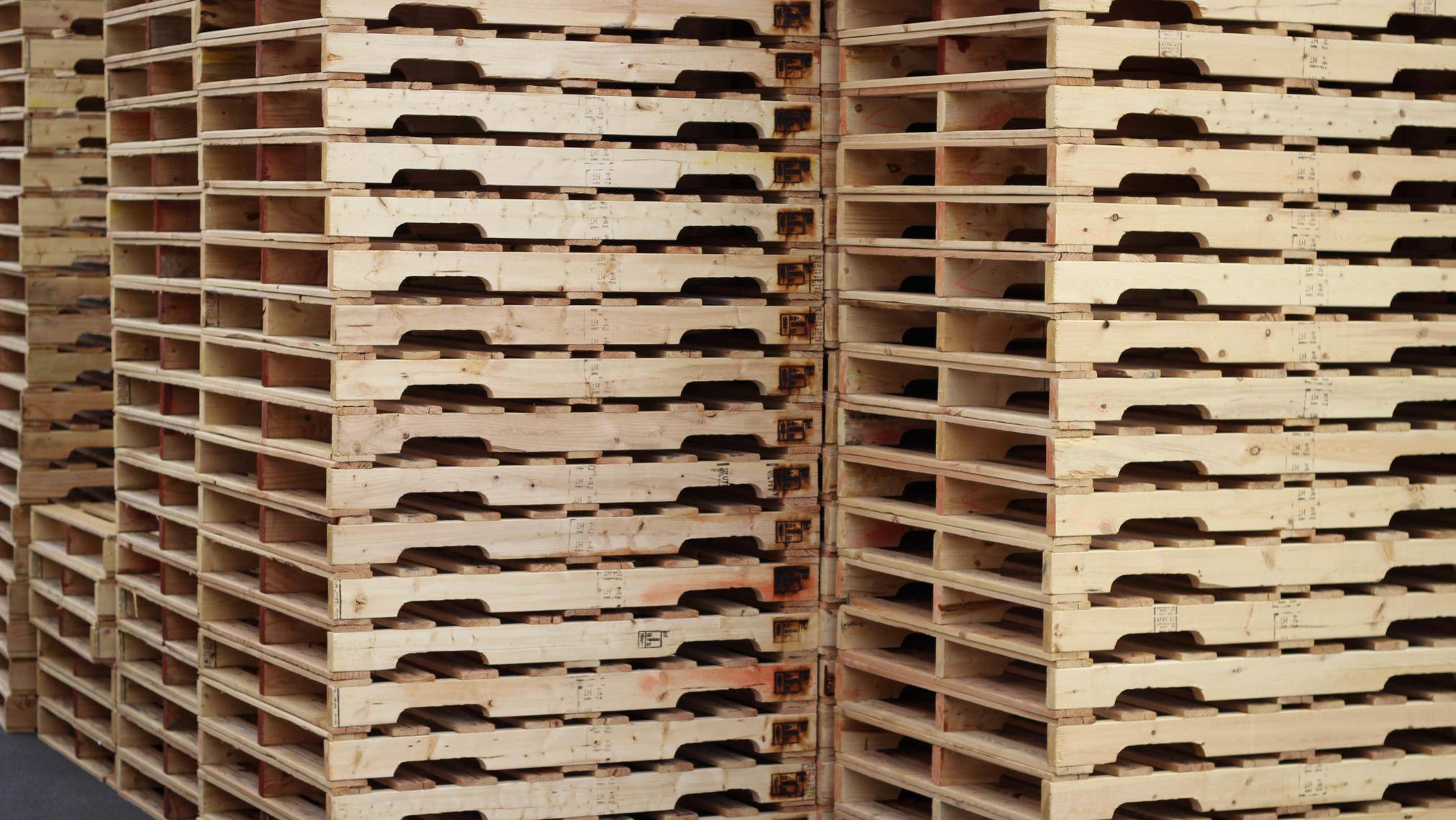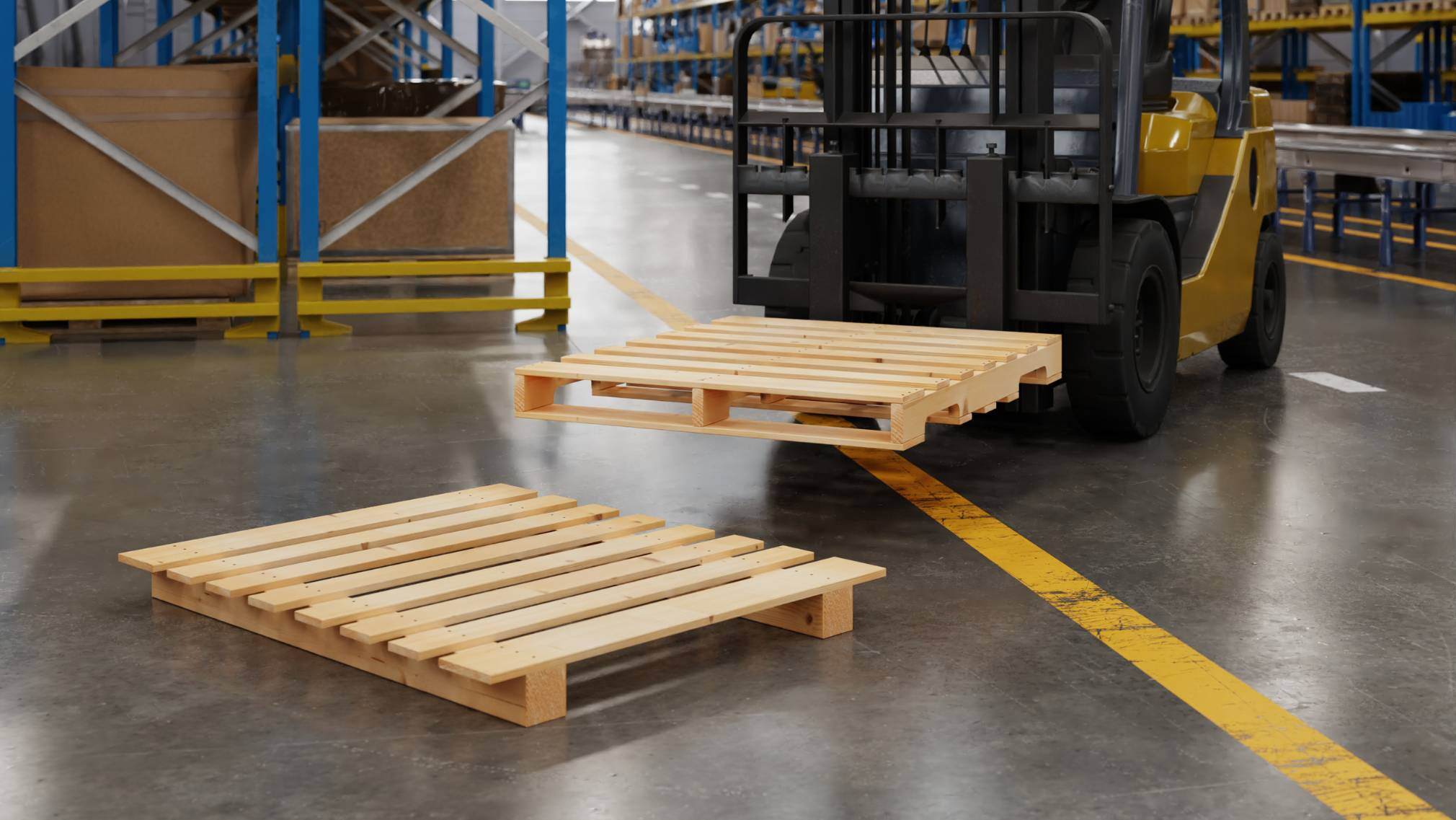Skid vs Pallet: Understanding the Difference and Why It Matters
Many people use the terms interchangeably, but there is a significant difference between skids and pallets, and knowing the difference can ensure you...
2 min read
UFP Packaging Updated on October 28, 2025

When selecting pallets for your shipping needs, understanding the full spectrum of options available is crucial for making an informed decision. Heat-treated pallets stand out for their distinctive benefits among the various types available. This article offers a comprehensive analysis, shedding light on why opting for heat-treated pallets could be the most cost-effective and advantageous choice for your business.
Heat-treated pallets undergo a specific treatment process to eliminate pests and diseases from the wood. The process must adhere to the International Standards for Phytosanitary Measures No. 15 (ISPM-15) standard for international trade. The wood must be heated to a core temperature of 56°C (132.8°F) for a minimum of 30 minutes. This method has been proven to stop the spread of potentially harmful biological agents.
For more information on ISPM-15 compliance, FAQs, and best practices from the U.S. Department of Agriculture (USDA), click here.
The heat treatment stamp on a pallet certifies compliance with the IPPC’s ISPM-15 standard. This ensures the pallet has been treated to eliminate pests and diseases from contaminating the wood and spreading it across borders. Below is a breakdown of the elements of the heat treatment stamp:
IPPC Logo: Located on the left side, this logo represents the International Plant Protection Convention, indicating the pallet has been heat-treated according to their standards.
Country Code: Located on the right side is a two-letter country code, which tracks the origin of the pallet.
Producer Code: Following the country code is a unique code that identifies the company or facility that performed the heat treatment.
HT: At the bottom, you will see “HT” representing “Heat Treatment” -- indicating the pallet has undergone heat treatment to the ISPM-15 standards.
IPPC’s ISPM-15 heat treatment seal. The stamp promotes the efficient transportation of goods worldwide.
This stamp is not just a formality –- it is pivotal in facilitating smooth and efficient global trade. Customs officials use it to verify whether shipments are safe from invasive pests and diseases entering their country. Without the HT stamp, shipments could face delays or rejections at border crossings.
While there are multiple options for palletization, including plastic, metal, and untreated wood pallets, each has pros and cons. Below is where heat-treated pallets often have the competitive edge:
Durability and Safety: Heat treatment makes the pallets more durable against the rigors of shipping and storage. This process also ensures the pallets are free from harmful pests and diseases, making them the most cost-effective wood option for safe international trade.
Environmental Consideration: Wood pallets, especially heat-treated ones, are often celebrated for their sustainable properties. They are easily recyclable and boast a smaller carbon footprint than plastic options.
Cost-Effectiveness: While the initial cost might be higher than untreated wood pallets, heat-treated pallets can be a more cost-effective solution in the long run. This is due to their longer lifespan and the avoidance of potential fines or delays in international shipping due to non-compliance with ISPM-15 regulations.
Regulatory Compliance: For businesses involved in international shipping, heat-treated pallets are not just an option; they are a requirement if using conventional wooden pallets.
The nature of your products, shipping destinations, and budget considerations should all be considered when choosing pallet types. While the upfront costs associated with heat-treated wood pallets may be higher, their durability, compliance with international shipping regulations, environmental benefits, and overall safety can offer significant returns on investment.
UFP Packaging offers heat-treated pallets at 26 locations across the United States. As the leading North American total packaging solutions provider, we have the network and capacity to service the largest corporations.
Click here to request a quote or schedule a consultation.
Want to receive all of the latest packaging news and insights?

Many people use the terms interchangeably, but there is a significant difference between skids and pallets, and knowing the difference can ensure you...

Pallets are essential components in commercial and industrial operations. They are used daily to easily transport goods such as building materials,...
.jpg)
What is ISPM-15 ISPM-15 is an acronym for International Standards for Phytosanitary Measures No. 15. This measure is a global regulation created by...